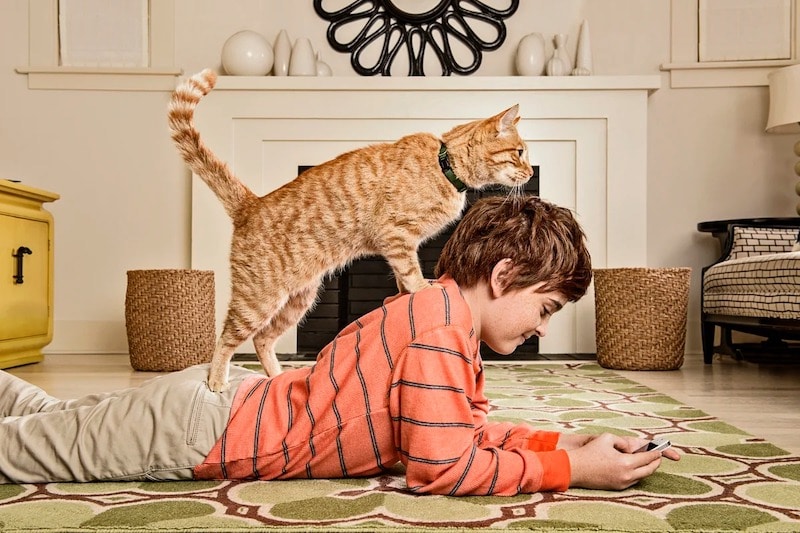A common question among people living with cats is how they view us, their masters. The question is whether they experience feelings of esteem and affection or whether they see us as mere caregivers and providers of food and shelter. In other words, if it’s about love or just convenience.
The cats have an unfounded reputation for being gruff, aloof, independent, and even treacherous, the latter view being one of the most extreme. The truth is that those who think so do so because they have never lived with a cat, because it is enough to do so to discover in him one of the most sensitive and wonderful animals in the universe.
Cats have very bad press and are victims of a false myth.
Research conducted on more than 30 cats subjected to a series of tests aimed at evaluating their level of stress when they are alone and in company gave surprising results.
It has been demonstrated that the cats develop feelings for their masters, whom they consider to be their non-cat relatives.
64% of cats responders showed attachment through their bodily attitudes towards their owners, interpreted appropriately, as they were distressed when left alone. On the other hand, 30% of cats exhibited insecure attachment, as they reflected stress levels that were not as high as the previous ones.
The attachment of cats to men would represent a flexible adaptation of the expected attachment of the cared-for individual to the caregiver, as it facilitated their survival in clearly hostile and male-dominated environments. A dual role of the human being: both cause and consequence.
In other words, cats feel close to their masters not only because they live with them, but also because they are fed, cared for, petted, cuddled and loved.
It is very important to note that the cats can generate greater affection and a clearer, more persistent display of affection towards their owners than most dogs. It is therefore clear that the cats are emotional animals, contrary to popular belief, and that they have strong feelings and emotions.
From a temporal point of view, they act by living in the present without needing to remember the past other than as a factor in reflecting on and learning from their experiences.
Their emotional reactions are likely to be immediate and basic, even incomprehensible, but it has been shown that they can change and evolve with experience and the passage of time.
However, we humans can still improve the bond with our cats. Here are a few tips :
Don’t fix it : Eye contact is a sign of dominance. If you stare at him, you challenge him and can trigger an aggressive situation.
–Don’t yell and punish him : never try to educate him in this way, because you will only scare him or he will defend himself by growling and scratching.
–Don’t block their way : the problems with our cats come from mismanaging their fears and blocking them can scare them.
–Do not disturb them while they sleep Disturbing them while they sleep can cause fear, as it puts them on “alert” and can lead to aggression and stress.

–Use cat toys One of the tricks to getting along well with your cat is to use attractive and entertaining toys that he can “chase”.
–Do not interrupt them when they are using their litter box : This is when they are most vulnerable and helpless, and interrupting them can cause them a lot of stress and annoyance.
–Respect their time and space : them cats are very independent animals, so we should not force or contradict them, because that only generates bad behavior towards us.
*Doctor Juan Enrique Romero @drromerook is a veterinary surgeon. University education specialist. Master in Psychoimmunoneuroendocrinology. Former director of the Hospital Escuela de Animales Pequeños (UNLPam). University lecturer in several Argentine universities. International speaker.